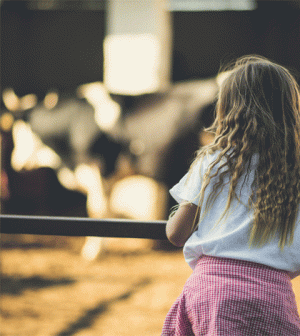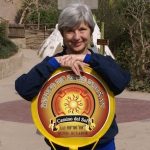- Finding Unshakable Power in a World That Wants to Pull Us ApartPosted 6 months ago
- What could a Donald Trump presidency mean for abortion rights?Posted 6 months ago
- Financial Empowerment: The Game-Changer for Women in Relationships and BeyondPosted 7 months ago
- Mental Health and Wellbeing Tips During and After PregnancyPosted 7 months ago
- Fall Renewal: Step outside your Comfort Zone & Experience Vibrant ChangePosted 7 months ago
- Women Entrepreneurs Need Support SystemsPosted 7 months ago
Prejudice, bigotry and racism are not new in Canada.

By Donna S. Vieira
Until the age of 8, I grew up on a farm in the middle of Nowhere, Manitoba. Life was simple and routine was part of the country flavour. Early to rise was a farmer’s motto and that included everyone in the household.
Summers were spent at my maternal grandparents just 10 miles or so up the road. They were also farmers and lived across the road from the Rose Valley Hutterite colony, where I spent some time crating chicken eggs in return for riding their horses bareback. Their modest, colonial attire made them stand out like sore thumbs, and while folks in town paid little attention to them, most viewed the Hutterites as “different” and tended to avoid them and look down their noses at them. Later, I would come to understand the “why” behind the town people’s reaction. Being a peace-loving religious sect, Hutterites did not pay taxes or go to war, so many in town felt they did not “belong in Canada.”
Looking back, this was perhaps my first exposure to prejudice, bigotry, and racism. Thankfully, the lessons were not lost on me. Personally, I loved spending time with these peace-loving, kind-hearted, God-fearing, Bible-thumping people. Everything, from farming and chores to cooking and eating, was carried out as a community. Their homes had no kitchens as they were only used for sleeping. Being an only child at the time, I saw them as one big, happy family and I felt very comfortable in their midst, doing chores, singing gospel songs, attending funerals and occasionally celebrating with a little homemade candy. They showed me what “community” meant.
Like most children, I started school at 6. Up the road from town was a Métis settlement and children from that community attended the same school. On my first day of school, I made fast friends with a young Métis girl, Lily McKay. We were inseparable in the schoolyard. I should mention that my maternal grandmother was an amazing seamstress, and being the only grandchild, I always wore beautiful dresses made of gabardine cotton, velvet, and satin.
Needless to say, Lily’s attire was quite different. In fact, she often wore the same nylon dress for days on end. One day at recess, I decided she needed a new dress, so I exchanged my dress for her nylon dress. I loved it because it was so light and airy when I twirled.
When I arrived home after school, my mother stared at me in disbelief. Where was my dress? I explained that Lily needed a new dress, so I gave her mine because I had many more in the closet. My mother immediately stripped me down to my bare bottom, threw the nylon dress outside and sent me down to the basement where she filled a laundry tub with water and turpentine and put me in it. I didn’t understand what was going on and asked why. Her response baffled me: “You probably have lice!” She hadn’t checked to see if I did; she simply assumed. This was my second exposure to racism. I have to say, though, that my mother’s views of Lily never deterred me from being Lily’s constant companion at school. We remained steadfast friends until my family moved from the farm to Winnipeg when I was 8.
But I never forgot her name.
In the city, I was the outsider—a farmer’s daughter. Kids at school ridiculed me at every opportunity, constantly reminding me of where I came from. Their assumption was that farmers were dumb and uneducated. This was my personal exposure to prejudice and bigotry. I just studied harder.
Meanwhile, at home, I would hear my own mother refer to foreigners as “DPs,” a derogatory term meaning “displaced persons.” Her comments only made me want to learn more about these people, their country, and why they emigrated to Canada. History and geography became my favourite subjects and I was determined to travel to these far-flung places someday. And I have.
By 16, I was living in Montréal, where I observed yet another form of prejudice, bigotry, and racism. In Manitoba, I had attended school with French, English, Catholics, and Protestants and thought nothing of it. In Québec, however, schools were, and still are, segregated into French Catholic, French Protestant, English Catholic, and English Protestant, which naturally pitted schools and students against each other. Catholic teachers constantly reminded their students that mingling with protestants was sinful and English students rivalled French students at every opportunity.
It was so crazy that student hockey games between rivalling language or religious schools often ended up in a fight for no other reason than the hatred they felt for each other. As a French Canadian who attended an English Catholic school, I was labelled a “vendu” or a “maudit anglais” by French students. To the English, I was a Frenchie. Québec’s old-fashioned Napoleonic laws and Catholic teachings only served to encourage such behaviour and separation. And it continues to this day. Although I was never fully accepted by either faction, in the end, these experiences taught me to be more independent and self-reliant.
Today, Canada is a melting pot of religions, cultures, languages, and traditions. And we are all better off for it. It’s time we all accept the fact that Canada has never been—or ever will be—a one-race, one-religion society. We have a wonderful opportunity to show the world what a New World looks like and how a New World acts. Everyone just has to be willing to listen and ask: “What can I do to make this a better world for you?” Because if it’s better for you, chances are it will also be better for me.
As women who rock the cradle, the teaching and the learning begins with us.
********
 Donna Vieira is a freelance travel writer and editor who has been travelling the globe since she was 10. She is also an astrologer and a recently certified empowerment coach. In partnership with her chef husband, she has owned and managed Globetrotters Bed & Breakfast/Gallery in Niagara-on-the-Lake since 2002 and welcomes guests from all over the world.
Donna Vieira is a freelance travel writer and editor who has been travelling the globe since she was 10. She is also an astrologer and a recently certified empowerment coach. In partnership with her chef husband, she has owned and managed Globetrotters Bed & Breakfast/Gallery in Niagara-on-the-Lake since 2002 and welcomes guests from all over the world.






